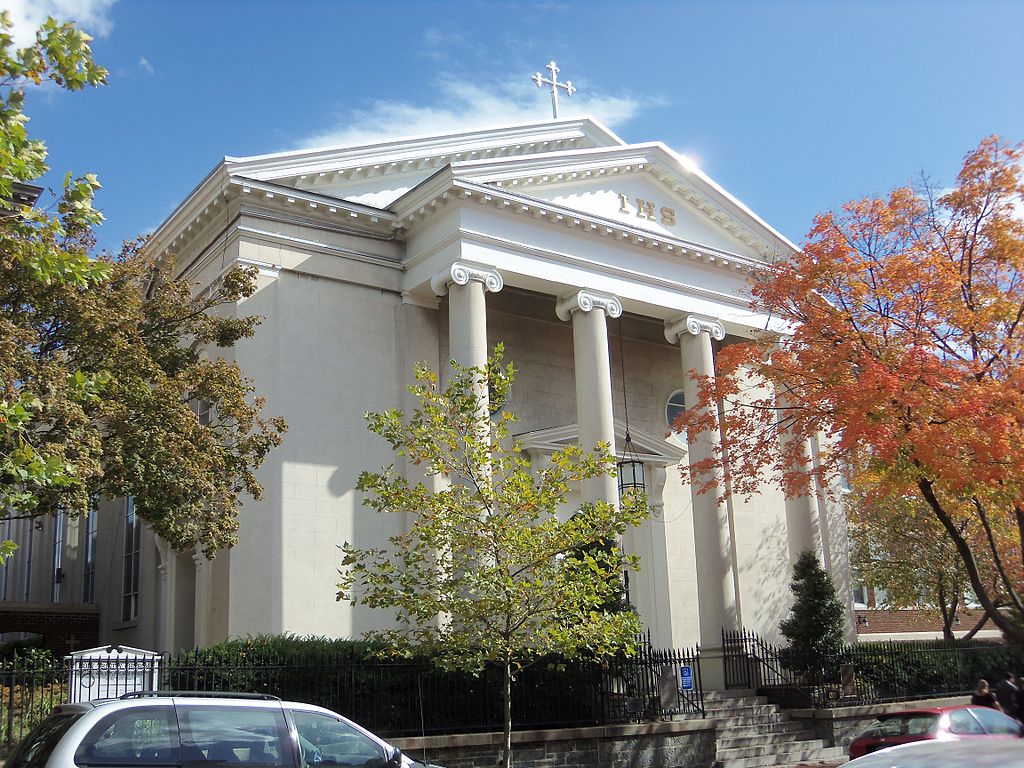Father James Martin, S.J., spoke at the Holy Trinity Church to discuss the need to form a bridge between the Roman Catholic Church and LGBTQ Catholics. Martin is a consultor to the Vatican’s communications branch under Pope Francis, and was quick to address the controversy surrounding his latest book, which offers Catholic leaders a new approach towards reconciliation with LGBTQ Catholics. Martin remarked in his Sept. 30 speech that the backlash and cancellation of his recent talk at the Theological College of Catholic University of America showed exactly why dialogue was necessary.
“[Catholic bishops’] objection is this–that any outreach implies tacit approval with everything that anyone in the LGBT community ever has said or done, or will say or do,” said Martin. “People should understand that when the Church or the diocese [builds an outreach program] for the LGBT Catholic, it is helping that person feel more connected to their church.”
Martin challenged the beliefs held by more conservative Catholics about the role of LGBTQ Catholics in the Catholic Church by noting that LGBTQ Catholics do in fact serve the Church. “Many [LGBTQ Catholics] if not most have felt from an early age misunderstanding, prejudice, hatred, persecution, and violence, and therefore in my experience, often feel a natural compassion towards people on the margins. Compassion is the gift that they bring to the church. That is certainly a gift,” Martin said.
Martin argued that other groups that act against church teachings are not subject to the same treatment as the LGBTQ community. He suggested that the singling out of the LGBTQ community in the Catholic Church amounted to the Catholic Church narrowly focusing on its members’ sexual morality. “So the selectivity is only on the LGBT person and only their sexual morality. We do not do the same things with straight people,” he said.
To improve this relationship, Martin suggested, the institutional Church needs to demonstrate its compassion, which begins with developing both familiarity with and sensitivity to the experiences of LGBTQ Catholics. While maintaining that the institutional church had the primary responsibility to initiate reconciliation, Martin also clarified that LGBTQ Catholics themselves also have the responsibility to reciprocate Catholic leaders’ efforts by treating bishops with respect.
Martin argued that failing to welcome marginalized groups like the LGBTQ community ignores many Biblical lessons. “It’s the conversion that Jesus talks about in the Gospel of Mark: metanoia! In the minds and the hearts that we’ll all fall to, that everyone falls to. The point is that for Jesus it’s community first and conversion second…So this is all part of sensitivity, being sensitive to people like Jesus was.”
Martin also accepted several questions from the audience. Regarding the role of the “ally” of the LGBTQ community, Martin recommended that allies be willing to receive and also respond to negative backlash faced by their LGBTQ peers on their behalves.
Finally, Martin gave a message of support to LGBTQ Catholics wishing to reconcile their faith with their sexuality. “We were all baptized,” he said. “The heavens sang ‘Hallelujah!’ It can never be taken away from you, ever…You’re Catholic. The next time someone says you don’t belong in the Church, pull up your baptism certificate.”






